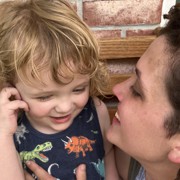Opinion
Letter to the editor: ‘Universal school choice’ or forced segregation?
Sierra Bush Rester writes on this year's school vouchers expansion bill and 'why inclusion matters.'

Image by Michal Jarmoluk from Pixabay
To the Editor,
Re: “School vouchers expansion takes first step in Florida Legislature,” Jan. 27, 2023, by Ryan Dailey.
In its current form, there is nothing “universal” about the proposed universal school choice voucher program. The word universal implies that access is open – and to a certain extent unlimited. However, by their very definition private schools are entities that are allowed to be selective with the type of children they accept into their institutions. For instance, many schools would not accept children like my non-verbal autistic child on the sole premise of his disability.
There was a time under what were called “ugly laws,” children like my child were not allowed out in public, let alone given access to a free and appropriate public education. Brown v. Board of Education changed all of that when it integrated schools. Now, for more than a half-century, disabled children have been able to access the support and accommodation they need to be successful and included in the classroom. This new proposed bill is a threat to the educational rights of disabled children and is a slap in the face to efforts put forth by inclusion programs in schools all across the state of Florida.
For one, despite this being marketed as “choice,” it is only a choice for children who have equitable access to the admission process. If private schools are allowed to turn children away based solely on their disability, then the option of choosing private schools becomes limited. Secondly, even if I could get my disabled child accepted into a private school, there is no guarantee that the school would provide him with the support and accommodations he needs to be successful.
Unlike public schools, private schools are under no obligation to implement individualized educational plans (or IEPs.) IEPs are federally binding legal contracts that require public schools to provide disabled children with the support they need to succeed. Without any such guarantee at private institutions, children risk being barred from success if they are placed in a private school that refuses to properly accommodate them.
How is it “school choice” when only abled children are able to make that choice without risking educational success? How is it “universal” if access to admission is selective? When we think this through it becomes clear that without provisions on equitable private school admission processes, and without assurances for IEP implementation to special needs families, this bill cannot truly be “universal choice” for all Florida families.
If the governor and lawmakers truly want to give Florida’s families a choice when it comes to their children's education, then at the very least they should ensure that children like my son (and parents like myself) get a choice in the matter. Otherwise, we may as well call this bill what it really is: state-sanctioned, publicly-funded educational segregation.
Sierra Bush Rester is a lifelong Florida resident, a parent and caregiver, and a former elected precinct committeewoman for the Leon County Democratic Party.
NEXT STORY: Opinion: Florida shouldn't be different when it comes to death penalty
